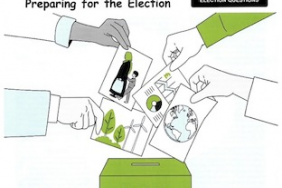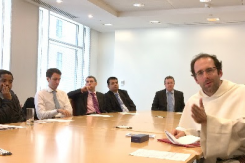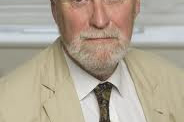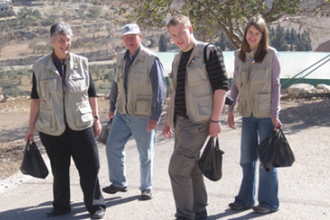Ian Linden: British democracy - no time for complacency
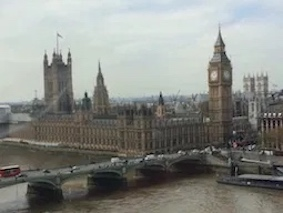
Houses of Parliament - Image: ICN/JS
After the general election, in the House of Commons, the former and present Prime Minister laughed together and said nice things about each other. This occasioned a note of self-congratulation in the media about the state of British democracy. Peaceful change of government. No-one disputing the vote count. A gold medal for GB in electoral conduct.
Well, up to a point Lord Copper. There is evidence of what seemed organised intimidation during campaigning: death threats requiring police protection, canvassers photographed while talking to voters, masked men disrupting a community meeting, fake Labour Party leaflets, yelling and vitriolic abuse directed at Labour candidates. All serious enough for the Home Secretary, Yvette Cooper, to call relevant ministers and civil servants together to discuss what might be done.
The grievance behind such worrying levels of intimidation is, of course, Gaza and the Labour Leader's initial response to what became horrifying civilian casualties. It all began just four days after Hamas' massacres inside Israel. Sir Keir Starmer was interviewed by Nick Ferrari on LBC just after the Labour Party conference ended. Asked about 'proportionate response', whether a siege, "cutting off power and water" was appropriate, Starmer, endorsing Israel's "right to defend herself", replied that it did "have that right, it's an ongoing situation, obviously everything must be within international law".
A siege of enemy forces is not prohibited by international humanitarian law but besieging civilian populations is. Starmer's words had conflated his insistence on the right to defence and his answer to the illegal besieging of a civilian population. It was a costly mistake.
Refusing to call for a ceasefire made things worse. Starmer, expecting to become Prime Minister and determined to gain credibility in the international arena, chose not to break step with the USA which opposed an immediate ceasefire until destruction and death of civilians in Gaza became intolerable. His stance compounded anger, discomfort and criticism inside and outside the Labour Party and highlighted the growing gap between politicians and the public.
The Archbishop of Canterbury, Justin Welby responding to the King's Speech in the House of Lords acknowledged these divisions. "Interfaith dialogue in this country has almost collapsed since October 7 last year and tensions are high and that is entirely as a result of overseas matters. That is seen with Israel and Gaza. Conflict overseas has a profound impact on our own society and our own domestic policies, because of the multicultural nature of our communities..."
To read on see: www.ianlinden.com/latest-blogs/british-democracy-no-time-for-complacency
Professor Ian Linden is Visiting Professor at St Mary's University, Strawberry Hill, London. A past director of the Catholic Institute for International Relations, he was awarded a CMG for his work for human rights in 2000. He has also been an adviser on Europe and Justice and Peace issues to the Department of International Affairs of the Catholic Bishops Conference of England and Wales. Ian chairs a new charity for After-school schooling in Beirut for Syrian refugees and Lebanese kids in danger of dropping out partnering with CARITAS Lebanon and work on board of Las Casas Institute in Oxford with Richard Finn OP. His latest book was Global Catholicism published by Hurst in 2009.



